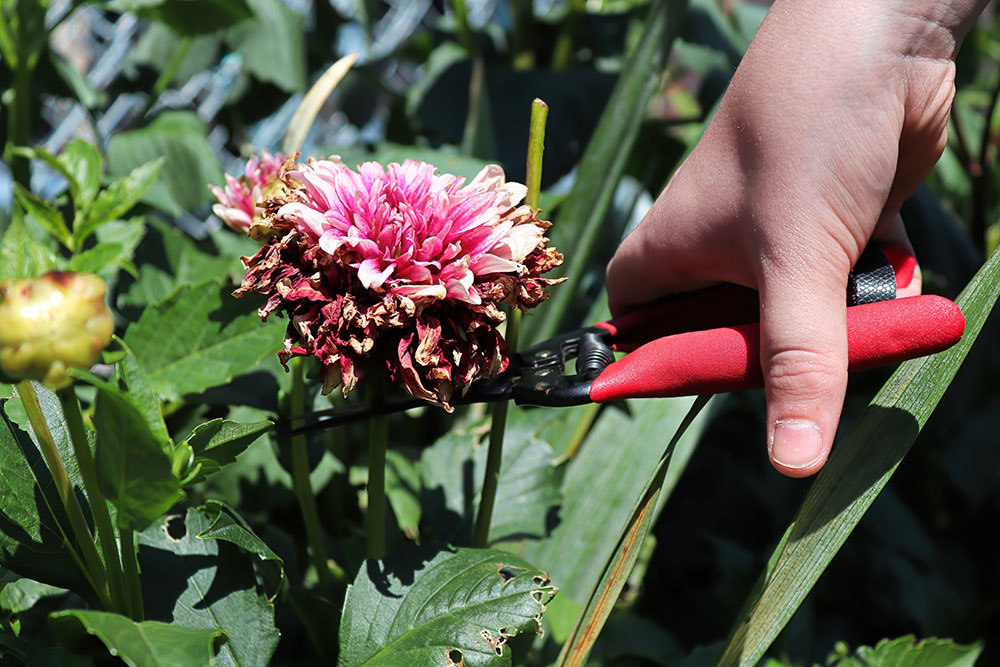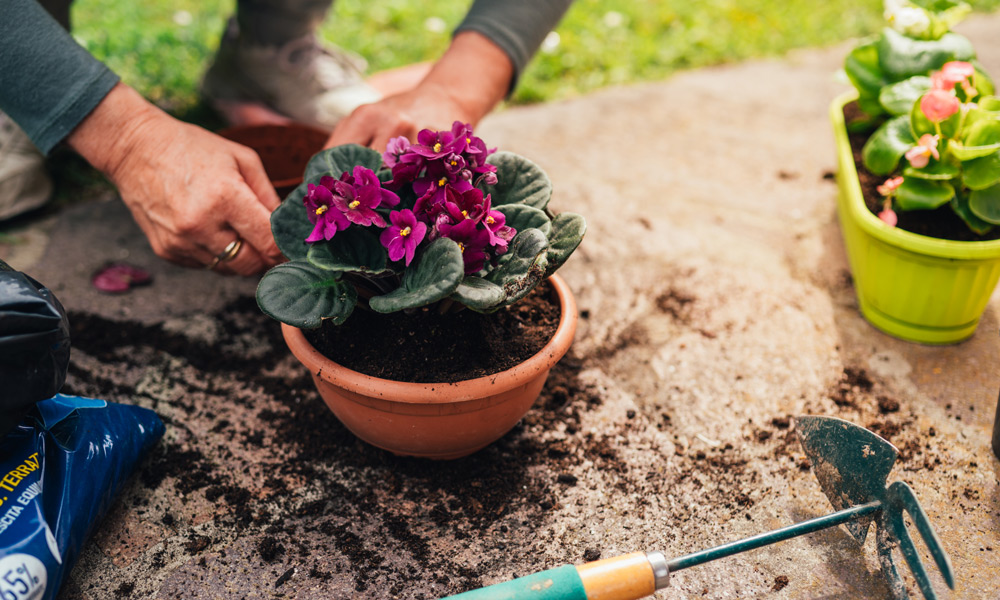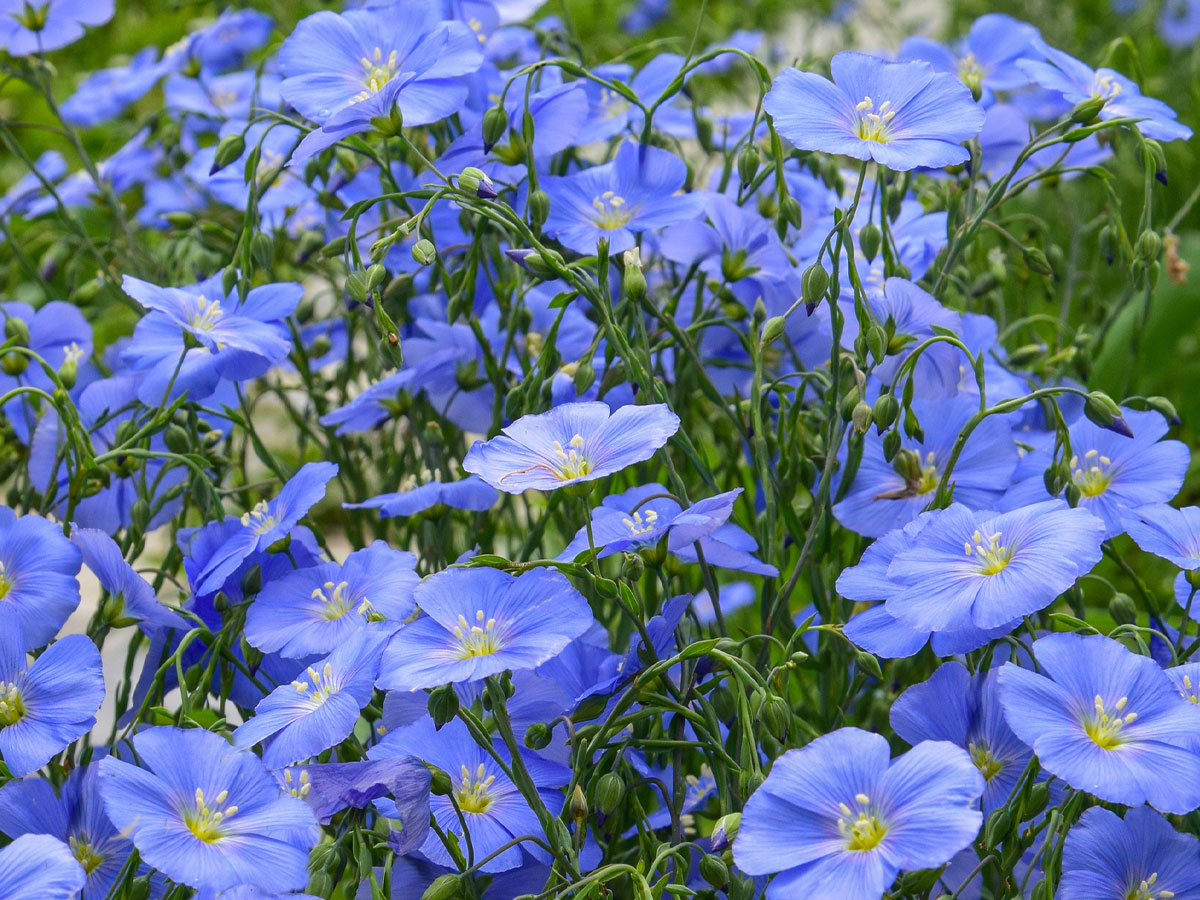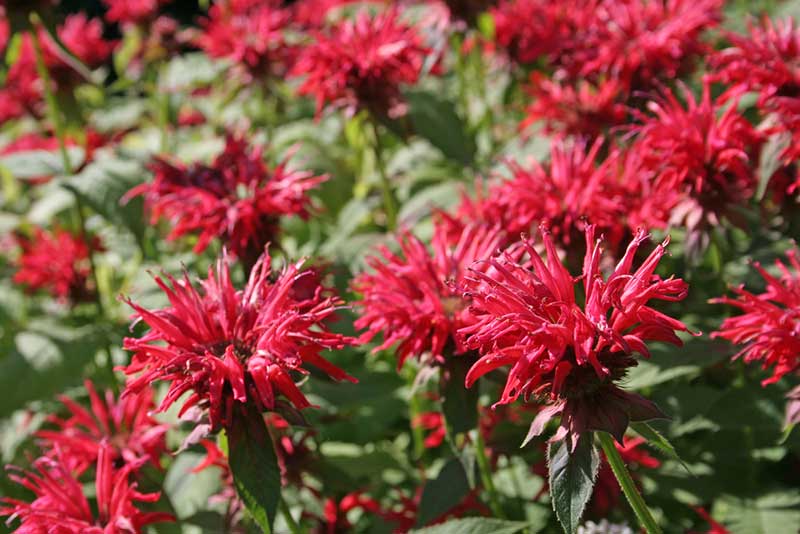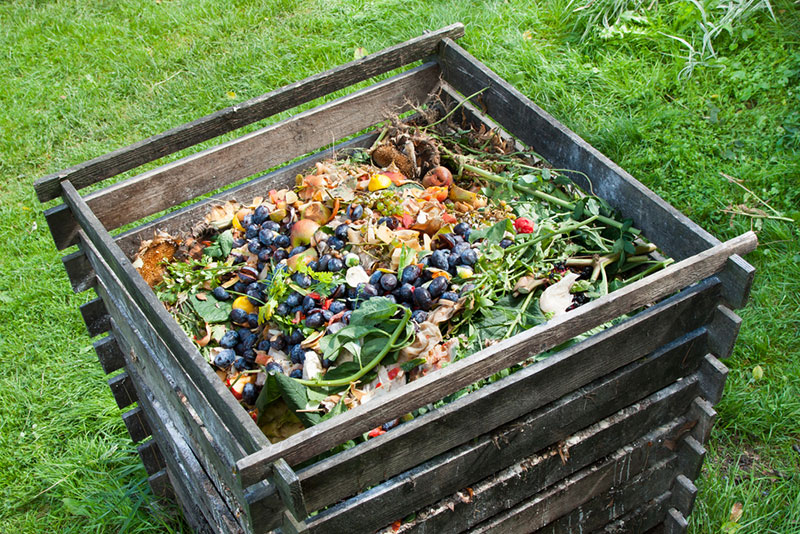
Composting turns kitchen and yard waste into rich, dark soil that adds nutrients and organic matter to your garden soil. Often referred to by gardeners as black gold it can be purchased at gardening centers and may even be available from community recycling centers. But you don’t need to rely on others for fresh compost for your garden. You can make your own with a little time and patience.
Why should you make compost?
Composting food scraps instead of dumping them into to trash and whisking them off to landfills does more that give you a good supply of compost. It helps the environment too. According to Conservation Law Foundation, Americans currently send 36 million tons of food waste to landfills where it produces methane gases which contribute to climate change. Composting them at home will reduce the amount of trash in landfills, reduce the amount of methane gas released into the air and provide you with a valuable resource for your garden.
Doesn’t composting release methane gas?
Because plant material decomposes aerobically when composted, meaning it uses oxygen during the decomposition process, it releases primarily carbon dioxide. Organic matter that decomposes in the landfill does so anaerobically, meaning without oxygen. This process releases relatively equal amounts of carbon dioxide and methane gas into the air, depending on the composition of the matter decomposing.
Both carbon dioxide and methane are greenhouse gases that can affect climate change, but methane holds 25 times the amount of heat that carbon dioxide does, says JD Lindeberg, president of the Resource Recycling Systems (RRS). This makes composting a responsible choice that will reduce harmful greenhouse gases in the environment.
What are the benefits of compost in the garden?
Finished compost is rich and dark and smells like fresh earth. It can be used to enrich the soil or as a mulch. It provides organic matter which improves the texture of the soil improving aeration and promoting drainage. It also adds nutrients to the soil reducing or eliminating the need for chemical fertilizers or soil amendments. Adding compost to the soil also helps prevent erosion and helps conserve water. Gardens amended with compost require less frequent watering.
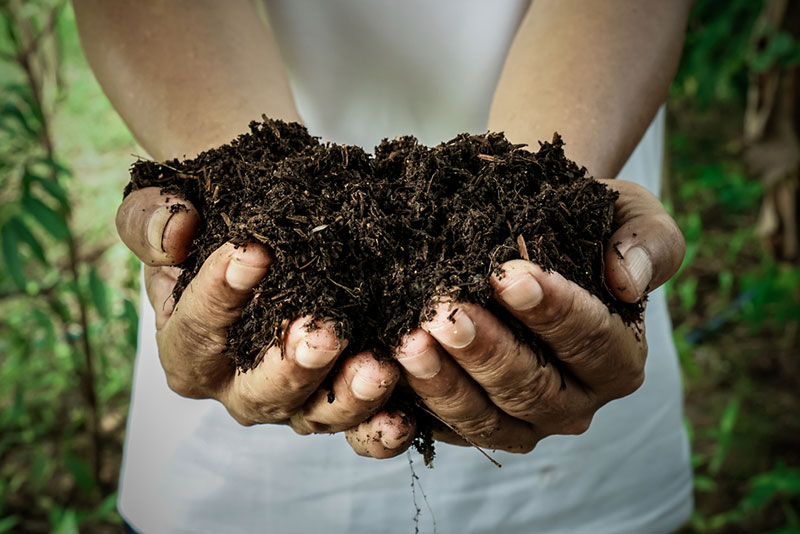
What else can you do with compost?
If you hit the mother lode and make more compost than you can use in your garden site, or you don’t have room to garden in the soil, there are other ways to use your compost. You can use it in raised beds, containers and even in pots for houseplants. Compost can also be used for mulch around trees and shrubs and in the flower garden. If you still have more than you can use neighboring gardeners will likely be happy to take it off your hands.
How do you make compost?
Making compost is relatively simple and can be done with a pile on top of the soil, but it can also be made in buckets and bins or in purchased composters. The investment you are willing to make of time and effort — along with any financial investment for equipment — will determine how simple or elaborate your composting setup should be.
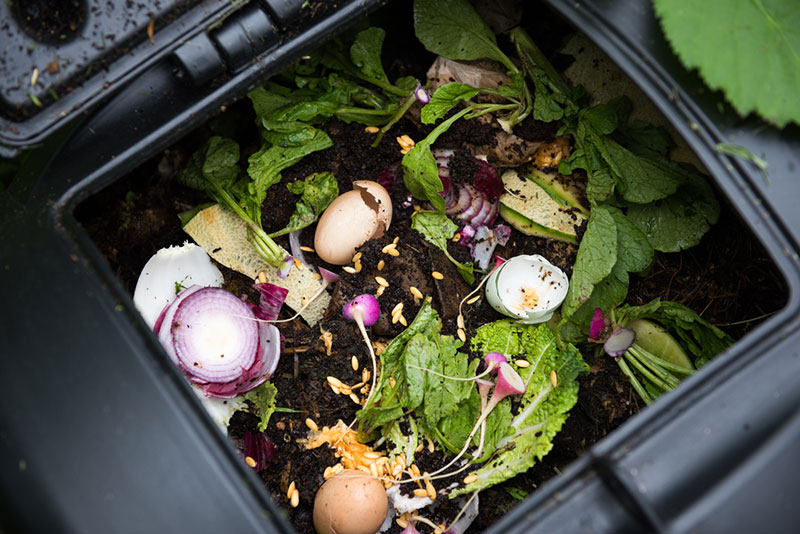
What equipment do you need?
For a simple compost pile on top of the soil you will need a garden fork or shovel, a large bowl or bucket for carrying kitchen wastes from the house to the compost pile and a source of water. You will also benefit from a wheelbarrow or garden cart for transporting yard wastes, a rake and other garden tools for cutting and chopping yard wastes to a compostable size.
How do you compost kitchen and yard wastes?
Your job consists of gathering and sorting the wastes, piling them in layers, watering the pile and turning the compost. With the right proportions of green to brown organic matter, nature will do the rest. Green organic matter refers to nitrogen-rich materials like kitchen scraps from fruits and veggies, green grass clippings, eggshells and fresh animal manure. Brown organic matter refers to carbon-rich organic material like wood chips, sawdust, shredded paper, old leaves, pine needles and dried grass.
What is the ratio of green organic matter to brown organic matter?
To compost efficiently you need to maintain a balance of green and brown materials in your compost pile. Green matter decays quickly heating up the pile, while brown matter provides bulk to the pile and improves aeration. The two work together to speed decomposing and transform the organic matter to usable compost. As a rule, you should aim for two to three parts brown material to one part green material, says the National Resources Defense Council (NRDC).
But the proportions do not need to be exact. The goal is to create a pile that heats up to speed decomposition. If your compost pile is not heating up to 150 degrees in the center, add more green material to the mix. If the pile is hot, but smelly and slimy, it needs more brown material.
How do you make the compost pile?
- Start my choosing a location that receives some sun but is shaded during the hottest part of the day. Compost piles in full sun dry out quickly.
- Rake the area with a garden rake to expose bare soil. This will allow worms and microbes in the soil easy access to the pile. They help break down organic matter and speed the composting process.
- Cover the soil with a 2- to 3-inch layer of small twigs, chopped cornstalks or straw. This will help with aeration.
- Add a 1-inch layer of green material, spread evenly over the brown.
- Toss in a shovelful of fresh soil at this point if you prefer. Some gardeners prefer to add soil to introduce healthy microbes to the mix.
- Continue to layer the pile with a ratio of approximately two to three parts brown and then one-part green matter.
- Top off the pile with brown material.
- Water the pile to moisten it. It should be moist, but not soggy.
- Cover the pile with plastic if you prefer. This can be beneficial for holding in moisture and prevents over watering if your area receives a lot of rainfall.
- Add new organic matter by mixing it into the existing pile.
- Turn the entire pile with a garden fork or pitchfork at least once a month. This introduces oxygen to the pile and keeps it active.
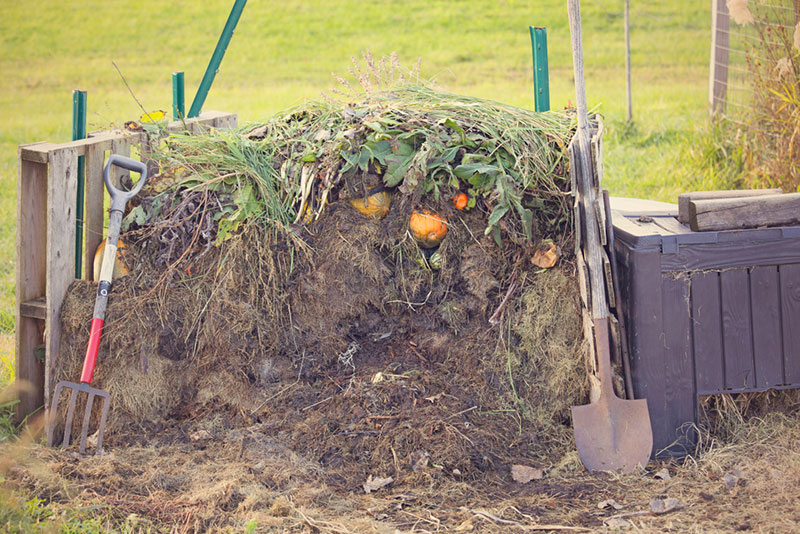
Can you compost all kitchen wastes?
Many kitchen wastes can be composted successfully. They include:
- Vegetable and fruit peels, cores and scraps
- Coffee grounds
- Tea bags
- Eggshells
Other additions for compost piles
- Animal manure, such as cattle, horse or sheep.
- Garden and yard vegetative debris like twigs, cornstalks or bits of wood.
- Sawdust or wood shavings.
- Grass clippings
- Garden cuttings
- Shredded paper
- Dried leaves or pine needles
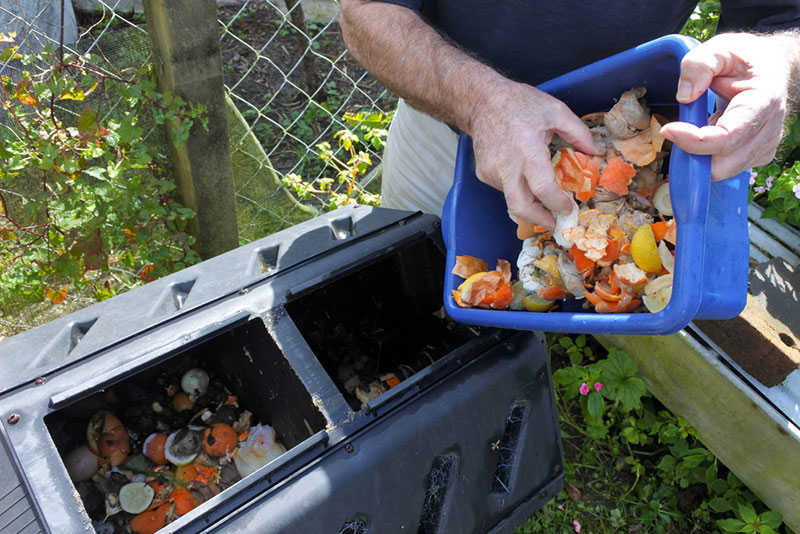
What things shouldn’t go in the compost pile?
- Meats
- Bones
- Fats
- Dairy Products
- Fish
- Pet wastes (they may contain pathogens)
- Diseased plant debris
- Yard wastes contaminated with insecticides.
- Chemically treated wood scraps
- Glossy paper
Making your own compost from your kitchen and yard wastes gives you a supply of rich compost for your garden while helping reduce greenhouse gases that contribute to global warming, too. It also reduces the amount of trash in landfills. Making your own compost is a win-win situation that requires relatively little time and effort once the initial work of starting the compost pile is done.

